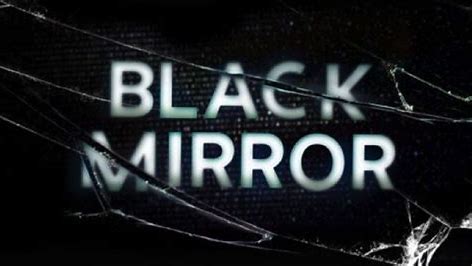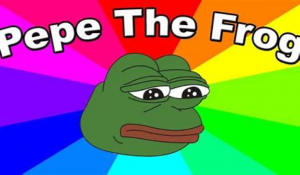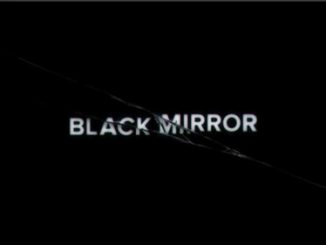
Introductory Paragraph
“The Waldo Moment” is the third episode in season two of the Channel 4 original TV Series, Black Mirror (2013). The director, Bryn Higgins, designs a world that is close to the real experience of digital place in a “multi-screen world”. In this episode, the principal digital focus is on the motion capture technology widely used for constructing animation characters, which had been invented in the 1990s. This episode also focuses on the connection between political elections and digital cultures.
“The Waldo Moment” fabricates a virtual character, “Waldo”, and places it into an ironic politics election campaign and other real issues. In Algorithms of Oppression: How Search Engines Reinforce Racism, Safiya Umoja Noble points out an increase in election team’s construction of online identities in well-orchestrated political campaigns (2018). The episodeexplores how simulative reproductions increasingly saturating the world politics we normally inhabit, depicting how digital figures are used to forge new identities and power dynamics, and manipulate the public values and democracy campaigns (Jones, 2020, p.111).
Waldo as A Politician
For the 2016 US presidential election, the story of Waldo became a reality: a well-designed, over-the-top, entertainment figure was running for office. This paper will discuss how the immersive journey in ‘The Waldo Moment’ explains the transition from virtual identity to the manipulating of political elections.

Source from Black Mirror, 2013
1. New Virtual Identities
The first stage is using digital avatars to help construct new identities both offline and online. David Kyle Johnson, the editor of Black Mirror, wrote an article focusing on “The Waldo Moment” (Johnson demonstrates that Jamie and Waldo represent the polarity of real (human) and virtual identity (Irwin, 2019). As the audience can capture the plot from the television, Jamie lacks strong educational background and social status. On the other hand, Waldo, another avatar/ identity played by Jamie, is very popular and active in political campaigns.
The multiple identities brought by technology is now helping people experience a parallel world. New technology like motion capture and personal online profiles now offer everyone multiple identities when accessing the Internet. Therefore, the virtual might interact and intermingle with its real influences to eventually replace the material world (Jones, 2020, p.93).
New technology now separates the figurehead, or the politician, from the person, challenging the tradition identities within the social system. In the 2016 American election, candidate Donald Trump had two divorce experiences and affairs with a porn star. However, Trump’s had crafted an outspoken identity on social media, attracting a group of passionate followers (Enli, 2017, p.51).

Source from GDJ, 2016
2. Manipulate Public Values
In the second stage, digital figures can be used as puppets in radical political movements, controlling and manipulating public values (Dijck & Poell & Waal, 2008). At one point in the episode, a character clarifies, “You already know he is not real. So, no personal flaws. Waldo is a construct people not only accept but embrace.” (Higgins, 2013). As explained in the television show, Waldo is entirely virtual, but has many human qualifications like humor, and the feature of humor is used for advancing his political standing in the election.
Such perfect avatars like Waldo will get a lot of followings and media exposure. With considerable exposure and appeal, the virtual figure gains attention and a following, and is thus free to lead the public in culture and ideas. Public figures and even “celebrities” like Waldo are then molded by a hidden design team. With the propaganda of the press, whether the character is fully virtual or real, negative or positive, virtual figure will garner attention from its potential audience. These pervade the media, expanding digital presence and influencing public values (Jones, 2020, p.111). The widespread acceptance and perception in virtual cultures greatly influence judgement in the public sphere.
Such manipulative tactics have also been proven to be effective in real elections. For example, Pepe the Frog, a once-lighthearted meme, was derived from an online comic character. However, the character was widely used by the alt-right during the 2016 election and eventually became a symbol of white supremacy (Gillspie, 2018, p.14). During politic manipulation, it is common to construct a comic figure to attract the public’s attention and mislead the public to ignore the strategies behind the curtain. De Matos Alves argues that the MASS figure represents tools for spreading and consolidating ideology (Duarte & Battin, 2021, p.19).

Source from Henpark
3. Digital Political Fandom
During the election, a popular virtual figure affects public values. This part of the paper will discuss how virtual figures form a “political fandom”. In “political fandom” culture, the public, as politicians’ followings, tie themselves in group political ideology, embracing whatever that political figure says and does (Irwin, 2019).
There is no doubt that digital platforms reshape the traditional political election. Hillary Clinton, for example, launched her presidential candidacy by tweeting instead of relying on the mainstream media (Enli, 2017, p.53). Social media platforms were increasingly used as direct news sources, bypassing the editorial media (Enli, 2017, p.51). In “The Waldo Moment”, the scriptwriter arranges an ironic sentence: “We just put it online. Let the people vote, thumbs up, thumbs down. The majority wins. That is a democracy” (Higgins, 2013). As a medium that can directly interact with the voters, it offers the public a free place to discuss political preference. Whether such a democracy fit the broad definition of democracy remains a question.
In this digital era, an intensified personalisation of political advocacy and anti-elitism are increasing, leading to populism (Enli, 2017, p.52). Compared to traditional media, social media prefers to produce more entertaining content in a short time. As a “multi-screen” era, numerous homogenized contents, such as emoticons, spoof videos etc., have won the favor of the public and gained more dissemination.
Through such increased spreading, more virtual characters (including animals or animations) are becoming ‘celebrities’ on social media. Unlike gossiping celebrities in the real, these ‘celebrities’ are focused on entertaining and gaining a political following. On social platforms, a growing number of fans constitute the political fan culture. Political campaigns are now paying attention to such tactics to plug voters into fandom culture, which contains the direct interaction they desire to increase voter support. During the process, platforms may not shape public discourse by themselves, but they do affect public discourse (Gillespie, 2018, p.23).

Source from Black Mirror, 2013
Reflection on “Waldo”
“The Waldo Moment” transmits a moral message, a “political warning”. It’s not only pointing out the dangers of vacuous political engagement, but also revealing the dangers of political fandom. Influenced by the ‘political fandom’, the public may not even like the politician’s policies, but they will be willing to vote and support it because of the identifications with the fandom culture.
The television series, Black Mirror, depicts the apprehension that accompanies the colonization of human consciousness by technology’s pervasive reach in the 21st century (Duarte & Battin, 2021, p.10). The director demonstrates the disruptive powers of affecting and leading the audience to critique the election campaign system (Duarte & Battin, 2021, p.10).
From a negative point of view, the diegetic technologies in these science-fiction videos also operate as visualized prototypes for a screen-based future (Jones, 2020, p.94). As Jones Nick claims, such extensive television depth employment helps to advertise communicative ideology, and the idea of political manipulation may be reproduced in real world (2020, p.99). In a world that emphasizes the ubiquity of virtualization, the boundary of democracy and freedom becomes blurred (Jones, 2020, p.94). It is critical for various media influence to accelerate the uptake of ideological structuring in social and political reality (Duarte & Battin, 2021, p. 19).
Looking forward
Following the genre of Science Fiction, Black Mirror ignites a critical lens to awaken viewers with a closer contemporary condition (Duarte & Battin, 2021, p.10). According to Karpf’s interview, in the virtual space, more mediums like books, music, movies, and television can transcend the limited-selection space imposed by physical stores (2018). Constructing a virtual worldview provides a digital experience that it is immersive and volumetric (Jones, 2020, p.98). Nowadays, the role of fictional films provides more spatial interpretation on new digital technology; and the immersive narrative becomes based on “diegetic prototypes”. Fiction and television thus connect technology with the public sphere, critiquing the relationship between the human and the digital era (Jones, 2020, p.100).
References
Duarte, G. A., & Battin, J. M. (2021). Imagining the Present Age. In Reading »Black Mirror: Insights into Technology and Post-Media Condition. Transcript Verlag, 9–24. https://doi.org/10.14361/9783839452325-001
Enli, G. (2017). Twitter as arena for the authentic outsider: exploring the social media campaigns of Trump and Clinton in the 2016 US presidential election. European Journal of Communication (London), 32(1), 50–61. https://doi.org/10.1177/0267323116682802
Gillespie, T. (2018). All Platforms Moderate. In Custodians of the Internet: Platforms, Content Moderation, and the Hidden Decisions That Shape Social Media. Yale University Press, 1-23.
Higgins, B. (Director). (2013). Black Mirror [TV Series]. Channel 4.
Irwin, W. (2019). Black Mirror and Philosophy: Dark Reflections. Wiley Blackwell Press.
Karpf, D. (2018, Oct 9). 25 Years of WIRED Predictions: Why the Future Never Arrives(WIRED). https://www.wired.com/story/wired25-david-karpf-issues-tech-pre dictions/Links to an external site
Noble, S. U. (2018). A society, searching. In Algorithms of Oppression: How search engines reinforce racism. New York University Press, 15-63. https://doi.org/10.18574/9781479833641
Van Dijck, J., Poell, T. & de Waal, M. (2018). The Platform Society as a Society as a Contested Concept. The Platform Society. Oxford University Press USA-OSO, 5-32.
Jones, N. (2020). Immersion: entering the screen, In Spaces Mapped and Monstrous: Digital 3D Cinema and Visual Culture. Columbia University Press,. https://doi.org/10.7312/jone19422
The Posthuman Politics— The Waldo Moment ©2021 by Xiaoke Tan is licensed under CC BY-NC 4.0.

